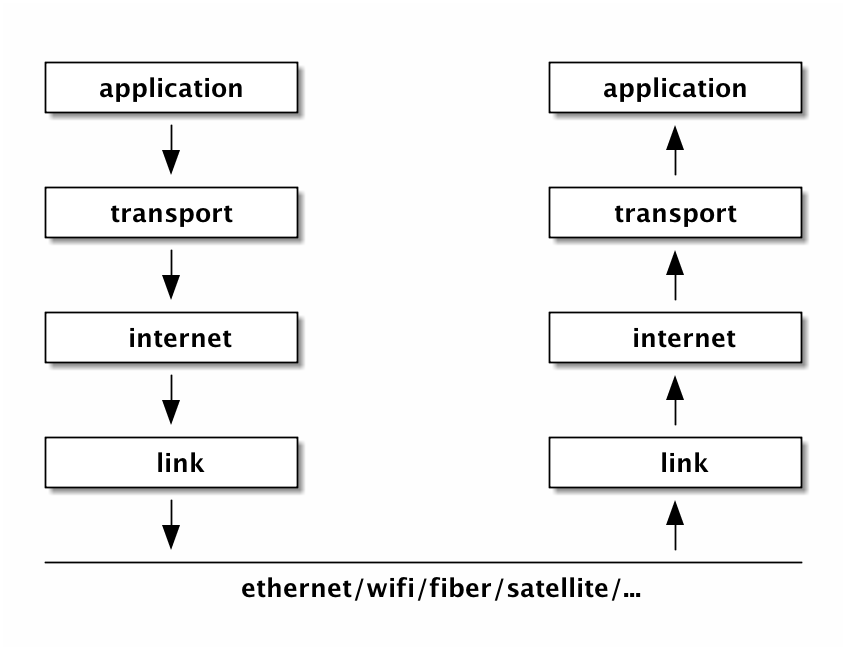lec 17: network programming
today’s plan
DNS & HTTP
programming abstraction: socket
(today: client-side socket)
(later this week: server-side socket & case study - node.js)
big picture
what happens when browsing http://www.cs.uw.edu/
protocol: HTTP
domain name: www.cs.uw.edu
(IP address: 128.208.3.118)
port: 80 (default)
q: can we directly use 128.208.3.118 in browser?
Internet protocol suite (TCP/IP)

[see also: OSI model]
protocol examples
application layer: DNS, HTTP, SSH, …
transport layer: TCP, UDP, …
internet layer: IPv4, IPv6, …
overview
translate www.cs.uw.edu to 128.208.3.118 (DNS)
connect to 128.208.3.118 (TCP)
send request to fetch data (HTTP)
DNS
a naming system (recall file system)
map domain names to IP addresses
example: www.cs.uw.edu → 128.208.3.118
q: can one domain name map to multiple IP addresses?
q: can multiple domain names map to the same IP address?
DNS resolution
a single file (HOSTS.TXT or /etc/hosts)? scalability?
hierarchy
root: .
generic top-level domain (gTLD): edu
[draw google.com, mit.edu]
root servers
run: dig . ns
demo: resolve www.cs.uw.edu
q: where’s mit.edu (from Seattle)?
programming interface
manpage: getaddrinfo, freeaddrinfo, getnameinfo
more on DNS
MIT 6.033’s DNS hands-on
take CSE 461
what’s next
now we have the IP address
how to connect to the server and fetch data?
socket programming

client-side socket
// return a socket (file descriptor)
int socket(int domain, int type, int protocol);
// connect to a server
int connect(int fd, const struct sockaddr *addr, socklen_t addrlen);use socket/connect to start a client-side socket (not open)
you can use read/write on sockets (or recv/send)
close when done
HTTP protocol
request/response protocol, over TCP, default port 80
client (e.g., browser) sends a request
server produces a response
HTTP/1.1 textual (HTTP/2 binary)
request format
[method] [uri] HTTP/[version]\r\n
[name]: [value]\r\n
...
[name]: [value]\r\n
\r\n
[body]methods: GET, POST, HEAD, …
demo (chrome & httpie): http -v www.cs.uw.edu
response format
HTTP/[version] [status code] [reasons]\r\n
[name]: [value]\r\n
...
[name]: [value]\r\n
\r\n
[body]status code
1xx: some kind of informational message
2xx: success of some kind
3xx: redirects the client to a different URL
4xx: the client’s request contained some error
5xx: the server experienced an error
see you on Wednesday
server-side socket